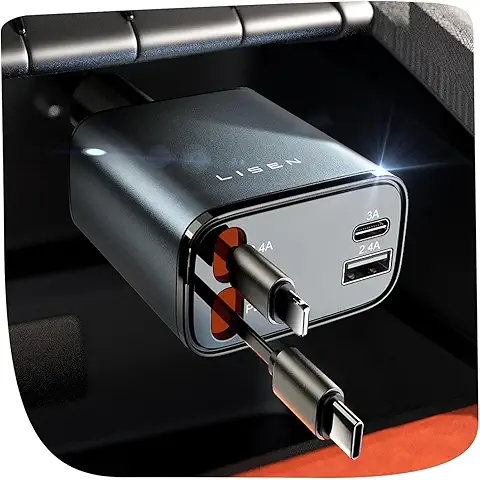Guide to EU Borders, Regulations, and other immigration topics for Non-EU Residents


Navigating the complexities of immigration laws, visa requirements, and border regulations can be a daunting task for non-EU residents. Whether you're planning a short visit, aiming to study abroad, or considering a longer-term relocation to the European Union, understanding the rules is essential to ensure a smooth experience. This comprehensive guide provides critical insights into EU borders, visa regulations, work and student permits, and other essential immigration matters, empowering you to travel and live in the EU with confidence.

Understanding EU Immigration Regulations: Visa Requirements
Visa requirements for non-EU citizens vary widely depending on the purpose and duration of your stay. Here’s an overview of the most common visa categories:
1. Schengen Visa for Short-Term Visits
For tourists, business travelers, or those visiting family and friends, the Schengen Visa is typically required when traveling to one or more of the 26 Schengen Area countries. This short-term visa allows stays of up to 90 days within a 180-day period. You must apply through the embassy or consulate of the country you will spend the most time in, or if time is equally divided, the country of first entry.
2. National Long-Term Visa
If you're planning to stay for more than 90 days—whether for study, work, or family reunification—you may need to apply for a National Long-Term Visa or a residence permit from the specific EU member state. These visas and permits vary by country, so it's crucial to understand the specific requirements of the destination country well in advance.
3. Visa-Free Entry
Some non-EU nationals can enter the Schengen Area without a visa for short visits (typically 90 days in a 180-day period) under reciprocal visa waiver agreements. The rules depend on your nationality, so always check the latest entry requirements with your local embassy or consult the EU's official website.
4. Multiple-Entry Visas
For frequent travelers to the Schengen Area, a multiple-entry visa can be a time-saving solution. This visa allows you to enter and exit the Schengen Zone multiple times within its validity period, without needing to apply for a new visa each time.
5. Work Permits and Student Visas
If you're planning to work or study in the EU, it's essential to secure the correct visa or work permit before arrival. A work permit often requires proof of an employment offer from an EU company, while a student visa requires confirmation of admission to a recognized educational institution. Applications should be made well in advance to allow sufficient processing time.
6. Visa Extensions and Renewals
If you need to stay longer than the validity of your visa or residence permit allows, you can inquire about extending or renewing your visa. Extensions are typically granted under specific conditions and often require supporting evidence.
7. Visa-Free Transit
Some travelers may be able to transit through EU airports without a visa if they have a valid visa for their final destination or hold citizenship from a visa-exempt country. Be sure to check with the airline and relevant authorities to confirm whether you qualify for visa-free transit.

Key Border and Entry Rules for Non-EU Residents
For non-EU residents traveling to the EU, understanding entry rules and procedures at the border is essential:
1. Passport Validity
Ensure that your passport is valid for at least six months beyond your planned departure date from the EU. Many countries require this minimum validity to avoid complications during travel and to prevent overstays.
2. Border Inspections
Though the Schengen Area allows free movement between participating countries, you may still encounter border checks for security or other reasons. Always carry your passport and any necessary documentation (like visas or permits) when traveling within the Schengen Zone.
3. Biometric Data Collection
Non-EU nationals may be required to provide biometric data, including fingerprints and facial recognition, at EU border control points. This is done for security and identity verification purposes and in compliance with EU data protection regulations.
4. Customs Declarations
Certain goods, including large amounts of cash and restricted items, must be declared when entering the EU. Failure to do so could result in penalties or confiscation of goods. Always familiarize yourself with the EU’s customs regulations before your trip.
5. Health and Safety Requirements
In response to health crises such as the COVID-19 pandemic, non-EU residents may be required to provide proof of vaccination or a negative test result before entering the EU. Stay informed about health-related entry requirements before traveling.
6. Criminal Record Checks
EU border authorities may check your criminal record as part of the entry process. If you have prior convictions or immigration violations, be prepared to disclose this information honestly, as failure to do so could lead to denial of entry.
7. Documentation for Entry
When crossing the border, ensure you have all required documents ready, including your passport, visa (if applicable), travel itinerary, proof of accommodation, and any other documents requested by authorities.

Residency Permits: How to Live and Work in the EU
To live, work, or study in the EU, non-EU nationals generally need a residence permit. Here’s what you need to know:
1. Types of Residence Permits
EU countries issue various types of residence permits based on employment, study, family reunification, or investment. Research the specific requirements of the country you intend to reside in, as the rules and application processes can vary significantly.
2. How to Apply
Applying for a residence permit typically involves submitting an application form along with supporting documents such as proof of identity, financial stability, health insurance, and your reasons for residing in the country. Some countries may also require you to attend an interview or provide biometric data.
3. Rights and Obligations
A valid residence permit grants you various rights, including access to healthcare, education, and employment. However, you must also adhere to local laws, including paying taxes and renewing your permit before it expires.

Travel Insurance, Language Skills, and Cultural Awareness
1. Travel Insurance
Travel insurance is highly recommended for non-EU nationals visiting the EU. It can provide financial protection against medical emergencies, trip cancellations, or lost luggage. For short-term Schengen visas, many EU countries require proof of valid travel insurance.
2. Language Skills
While English is widely spoken in many EU countries, especially in urban centers and tourist areas, learning a few basic phrases in the local language can enhance your experience and help you navigate daily life more easily. In some cases, knowledge of the local language may also be beneficial for working or studying in the EU.
3. Cultural Awareness
Respecting local customs, cultural norms, and etiquette is crucial for building positive relationships during your time in the EU. Each country has its own social expectations, and being culturally aware can make your experience more enjoyable and help you integrate better into your host community.
Conclusion: Planning Your EU Journey
With careful research and preparation, non-EU residents can successfully navigate the complexities of EU immigration regulations and border procedures. Whether you're planning a short visit, studying abroad, or making a permanent move, understanding the EU's visa requirements, border rules, and residency permits will help ensure a smooth and enjoyable experience.
Stay informed, respect local laws and regulations, and consult the relevant authorities or legal experts if necessary. With the right approach, your time in the EU can be both exciting and fulfilling, offering countless opportunities for personal and professional growth.








